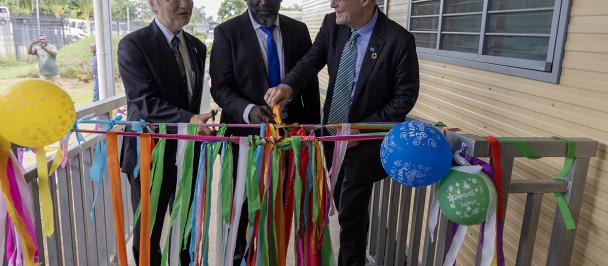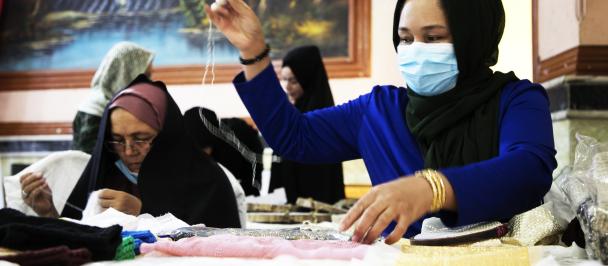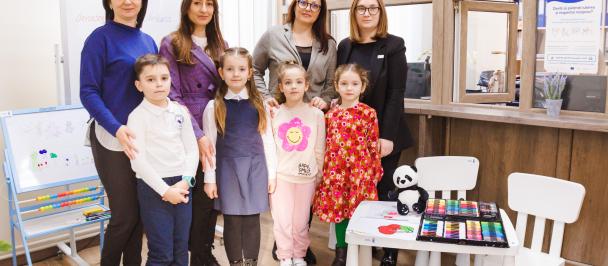Munda Market: Nurturing Community Empowerment in the Heart of the Solomon Islands' Western Province
April 8, 2024
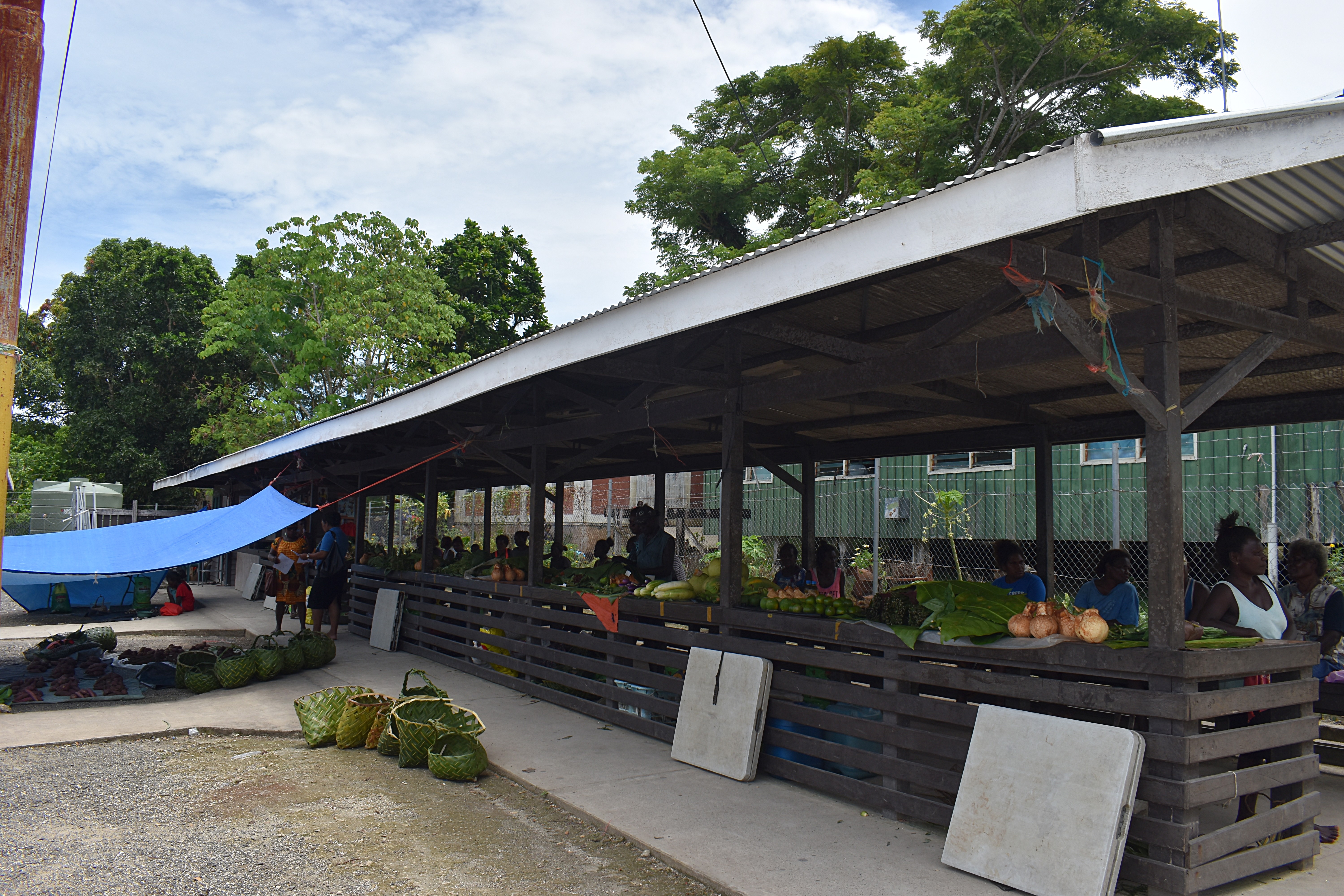
Munda Market, Solomon Islands.
Munda, located in the Western Province of the Solomon Islands, is a community heavily reliant on agriculture and fisheries for livelihoods. Everyday market vendors and farmers from nearby villages in Munda travel to Munda Market to trade their farm produce and fisheries products.
Location and Significance
Munda, nestled at the southwestern tip of New Georgia Island, is a hub of activity and culture in the Western Province. The market stands as a focal point for the daily lives of over 2,000 residents, providing a platform for buying and selling; a place where people can come together to meet. Its strategic location makes it not only a local trading post but also a frequented destination for tourists exploring the natural wonders of the Solomon Islands.
Facilities and Development
The transformative changes in the Munda Municipal Market, thanks to collaborative efforts spearheaded by initiatives such as the Market for Change (M4C) Project, have resulted in significant enhancements, including the construction of two new market stalls, a public toilet, improved footpaths for accessibility, dedicated office space, per fencing for security in close collaboration with UN Women as M4C project lead. Now approximately more than 100 market vendors trade on a weekly basis from Munda Market, contributing to the community’s supply of fresh fruits, vegetables, root crops and fisheries as part of their daily livelihood.
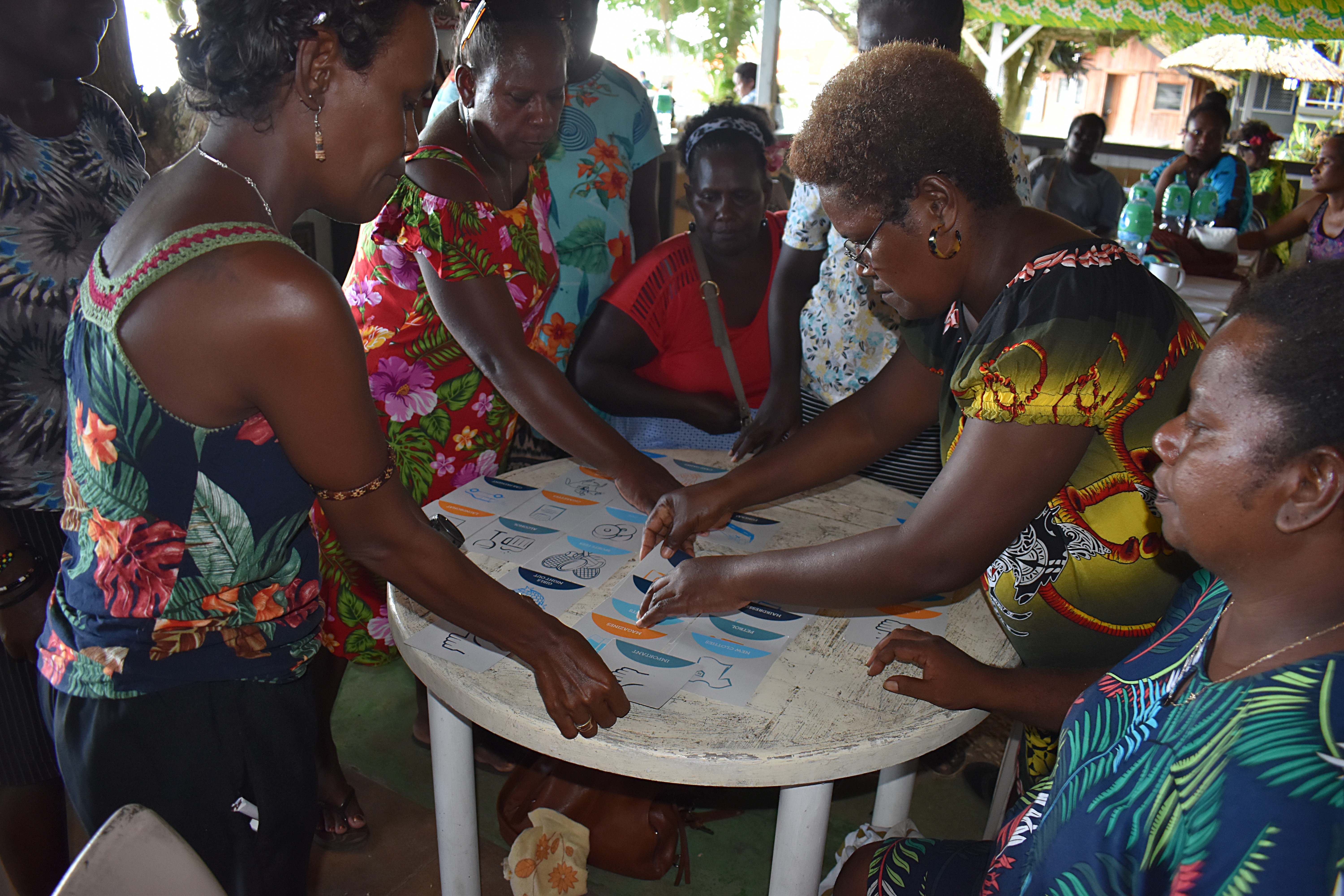
market vendors during the M4C Project-supported training.
Agriculture
The fertile lands surrounding Munda provide an ideal environment for agriculture. Locals engage in subsistence farming, cultivating crops such as taro, yam, sweet potato, bananas, and coconuts. Traditional farming methods are prevalent, with families typically tending to small plots of land for their food needs. While subsistence farming remains a primary source of food, efforts to improve agricultural practices and introduce cash crops for income generation have been observed.
Fisheries
Given its coastal location, Munda benefits from abundant marine resources, making fishing a crucial component of the local economy. Fishing activities range from traditional techniques such as handline fishing and net fishing to more modern methods using small boats. Fish not only serve as a dietary staple but also contribute significantly to income generation, with surplus catch often sold in local markets.
Livelihood Dependence
The nature of agriculture and fisheries underscores the community's dependence on these sectors for sustenance and economic stability. Despite rich natural resources, challenges such as limited access to markets, inadequate infrastructure, and environmental pressures pose obstacles to maximizing the potential of these livelihoods. Efforts by local authorities and development agencies to support sustainable agricultural and fisheries practices aim to enhance food security and improve the economic well-being of Munda's residents.
Capacity Development
The Munda Market vendors attended the Money Minded Financial Literacy Training conducted through the Markets for Change Project in partnership with ANZ Bank. The training provided an opportunity for the 45 Munda market vendors to learn new skills and knowledge on proper finance management on their market income.
The training also recognizes that agriculture and fisheries form the backbone of Munda's economy, providing essential sustenance and livelihood opportunities for its people. While these sectors face challenges, ongoing efforts to promote sustainable practices offer hope for a prosperous and resilient future for the community.
Impact on Vendors and Community
Market vendors, particularly women who form a significant portion of sellers, stand to benefit from the upgraded facilities and conducive Munda Market environment. With Munda's population steadily growing and tourism on the rise, the market's role in sustaining local livelihoods and catering to the needs of both residents and visitors is more critical than ever.
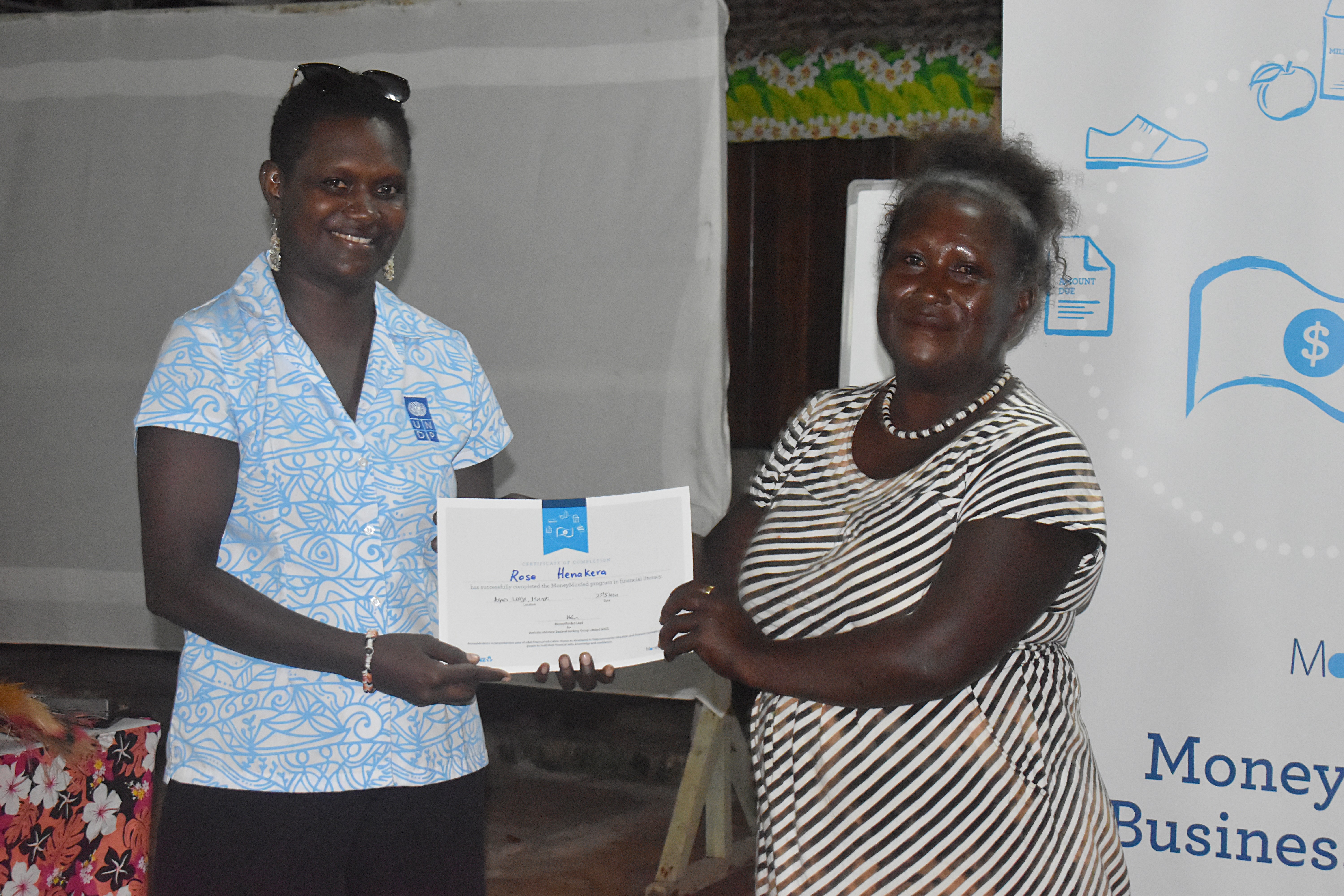
Training certificate presentation.
Rachel Wilfred has been a market vendor for more than 10 years in Munda. She sells handicrafts such as fans, earrings, baskets, and also handmade wreaths.
“I spend more of my time at the market as this is my only source of income. My children have started their own families, and I don’t depend on them to support me. Munda market is my workplace and I come to the market everyday as the market business is my source of livelihood. I also enjoyed the Money Minded Financial literacy training that was conducted by ANZ Bank, as it gave me new ideas on how to plan, and save money for my future needs,” she said.
The vendors were taught the importance of having SMART Goals and Vision Boards, re-emphasizing the SMART concept to set specific, measurable, achievable, relevant, and time-bound goals. Most vendors indicated that through visualizing these goals they could better understand the financial requirements and timeframes needed to achieve them.
Another important topic that interested a lot of vendors included the topic Making Money Last. With many cultural and religious obligations, along with unnecessary spending, were identified as common challenges in making money last until the next pay or sale.
Discussing money decisions within households is crucial, as everyone plays a part in managing finances.
The majority of market vendors also shared their learnings on how important it is to differentiate between needs and wants. They debated whether specific items fell into the ‘need’ or ‘want’ category and how the Money Minded training helped them categorize these into three levels: Very Important, Important, and Not Important. The budgeting topic explored the advantages of having a budget and the disadvantages of not having one. Most vendors learnt about capturing income, listing expenses, and calculating savings and the group activities involved using formulas to determine savings on a fortnightly, monthly, and yearly basis. These discussions and activities are essential for building financial literacy and making informed money decisions. It’s great to see participants actively engaging in these topics.
The Munda Municipal Market is a classic example of collaboration, community empowerment, and sustainable economic growth. Beyond its role as a trading hub, it truly defines Solomon Islands' Western Province, and it offers a glimpse into a future where prosperity is shared by all and enjoyed by all people. The M4C Project continues to support market vendors to work together with key development partners, and the Provincial Government to make a difference in the community of Munda.
The Markets for Change Project is aligned to the 2030 Agenda for Sustainable Development, and directly contributes to multiple Sustainable Development Goals (SDGs). It supports SDG 5 on Gender Equality, SDG 8 on decent work and economic growth, SDG 10 on reducing inequalities, and SDG 11 on sustainable cities and communities. It's a project that aims to ensure equality and economic empowerment for all, including men, women, youth, people with disabilities, and marginalized minority groups.
The Markets for Change (M4C) project aims to promote gender equality by economically empowering women market vendors in Fiji, Vanuatu, Solomon Islands and Samoa.This project, which brings together various stakeholders, offers financial literacy training that connects vendors and farmers with essential service providers. This sharing of information, raising awareness, and networking opportunities have the potential to improve the livelihoods of market vendors and their families.
The M4C project is implemented by UN Women in partnership with UNDP with support from the governments of Australia, Canada, and New Zealand.
For more information, please contact:
Vilisi Veibataki, Markets for Change Project Manager, UNDP Pacific Office in Fiji | vilisi.veibataki@undp.org | +679 3227701

 Locations
Locations